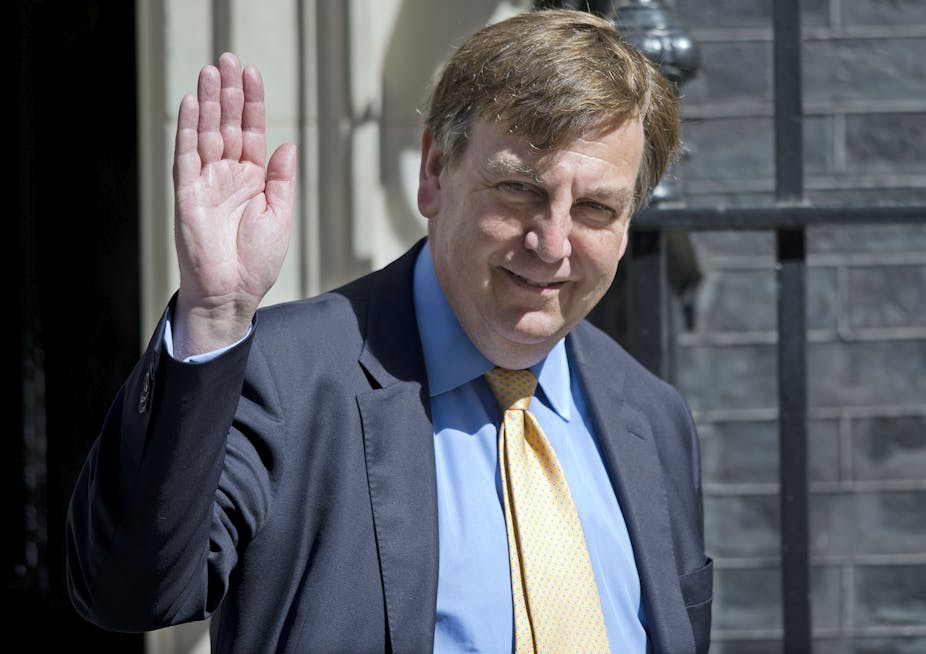On the face of it, John Whittingdale’s appointment as secretary of state for culture is thoroughly bad news for the BBC and those who value its cultural, democratic and economic contribution to the UK. With the current ten-year charter due to expire next year – at the same time as the freeze in the licence fee – Whittingdale will essentially determine on what basis and with what resources the BBC will continue from January 1 2017.
The Daily Telegraph’s chief political correspondent, Christopher Hope, described his appointment as an “effective declaration of war” on the BBC while the Daily Mail’s political editor James Chapman tweeted that, while Cameron had apparently been angered by BBC election coverage: “I didn’t believe he was as cross as Whittingdale’s appointment suggests.”
If commentators from the right-wing press are agitated, the reaction from supportive civil society groups and academics borders on despair.
It is not difficult to see why. Ideologically on the right of his party, Whittingdale described the licence fee last year as “worse than the poll tax” and unsustainable in the long term. The Culture, Media and Sport select committee, which he chaired, published its report on the BBC just three months ago, clearly imprinted with his personal vision for the future. Whittingdale wants a BBC which must “do less in some areas”, with a small proportion of revenue “made available for other public service content priorities” and with market impact tests to be triggered by any allegations of “crowding out” by commercial competitors.
Combined with replacement of the BBC Trust by a “Public Service Broadcasting Commission” with the power to redistribute revenue to other organisations, the report was a recipe for a BBC reduced to an impotent rump within ten years.
Moreover, Whittingdale is reported to have historical links to Rupert Murdoch’s News Corporation, which has long targeted the BBC – just as it does the ABC in Australia and PBS in the US – as a public sector intervention which interferes with Murdoch’s own corporate ambitions.
As long ago as 1996, Whittingdale resigned as parliamentary private secretary to the Conservative minister Eric Forth, having voted against his own government’s broadcasting bill because it prevented any newspaper proprietor with more than 20% of national circulation from owning a terrestrial television licence. As everyone recognised at the time, there was only one proprietor in the frame. In the immediate aftermath of the phone-hacking scandal, he was revealed to have been a long-standing friend of Murdoch’s key senior executive Les Hinton.
Ostensibly, then, a perfect storm of an antagonistic minister, a charter renewal process that must be short and sharp, a Conservative government likely to be at its most energised and least vulnerable in the first 18 months – and a right wing baying for BBC blood.
Making a case
There are, however, a couple of straws in the wind. During his ten years running the media and culture committee, Whittingdale was widely regarded as a fair and effective chairman. He is very familiar with the issues and is not deaf to proper arguments. Having given oral evidence to his committee on several occasions, I can testify that – unlike one or two of his former select committee colleagues – he listens.
Moreover, he was clear in his comments about the future of the licence fee that he was thinking beyond the next ten years – in other words, any move towards subscription or other funding solutions would have to wait until the 2026 Charter, by which time both technology and politics will have moved on.
In the short term, then, Whittingdale might be open to persuasion that the BBC is indeed a unique and valuable UK asset which should be protected from the ravages of deep and immediate cuts, let alone fundamental restructuring. It will, however, require not only the marshalling of incontrovertible facts, but a well-organised civil society campaign to demonstrate that the BBC remains a much-loved and internationally admired institution.

To reduce its funding or start redistributing the licence fee will inevitably result in services closed and quality compromised, with profound and irreparable damage to the BBC’s long-term future. Will Whittingdale want to preside over the wilful destruction of what remains for most people – if not his own right wing – a great British institution?
If all else fails, perhaps we can rely on the House of Lords. According to the Salisbury convention, the Lords will not oppose government legislation which arises out of election manifesto promises. But while the Conservative manifesto commits to continued use of licence-fee revenue for rural broadband roll-out, it says nothing about reducing the size of the BBC, changing its constitutional structure or introducing contestable funding.
If the new culture secretary is really intent on returning to his ideological roots and inflicting terminal damage on such a vital British institution, those of us who wish to resist such political savagery may have to start mobilising the upper house.

